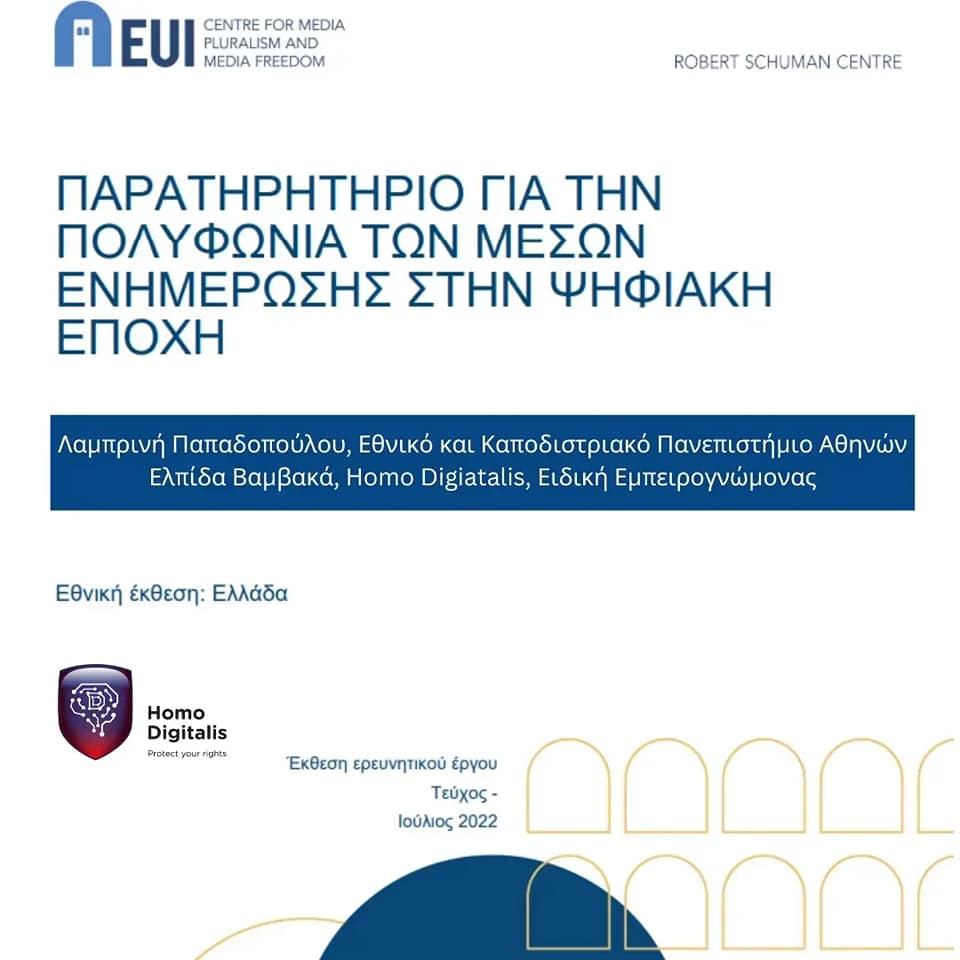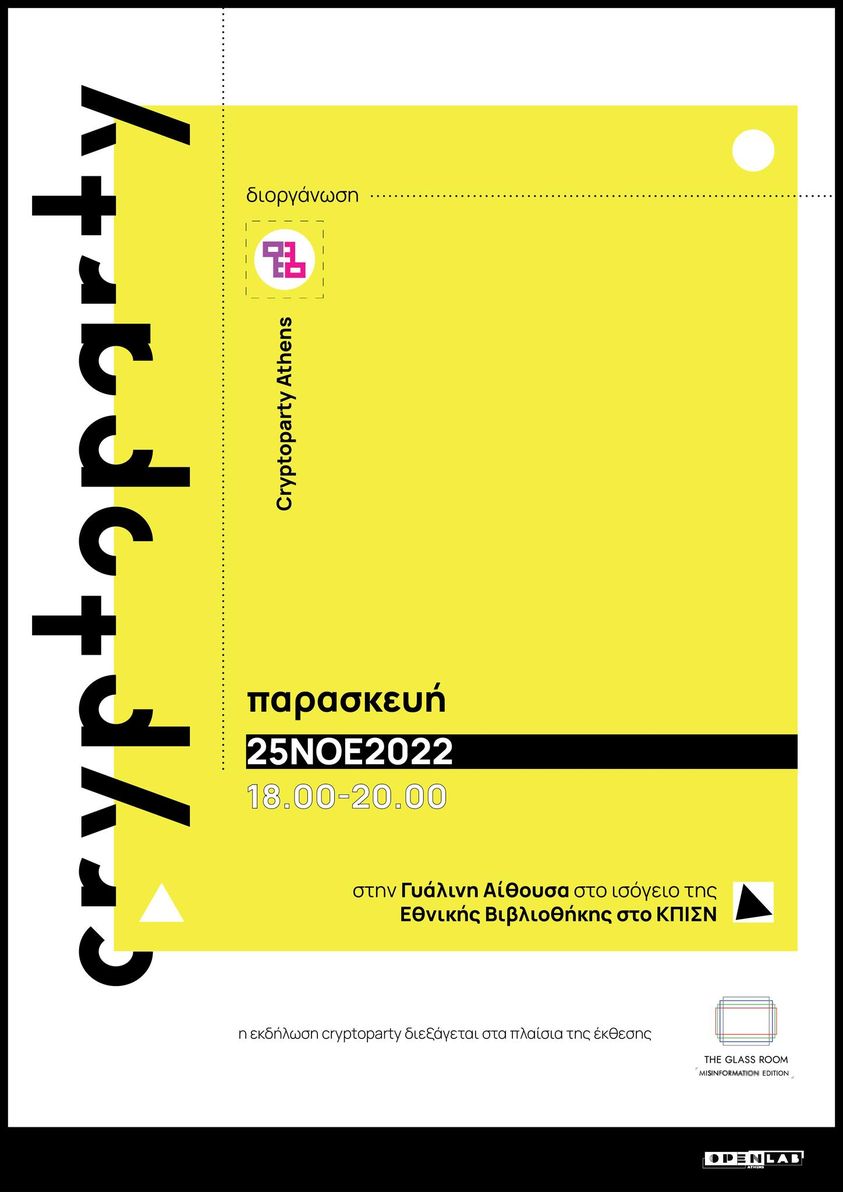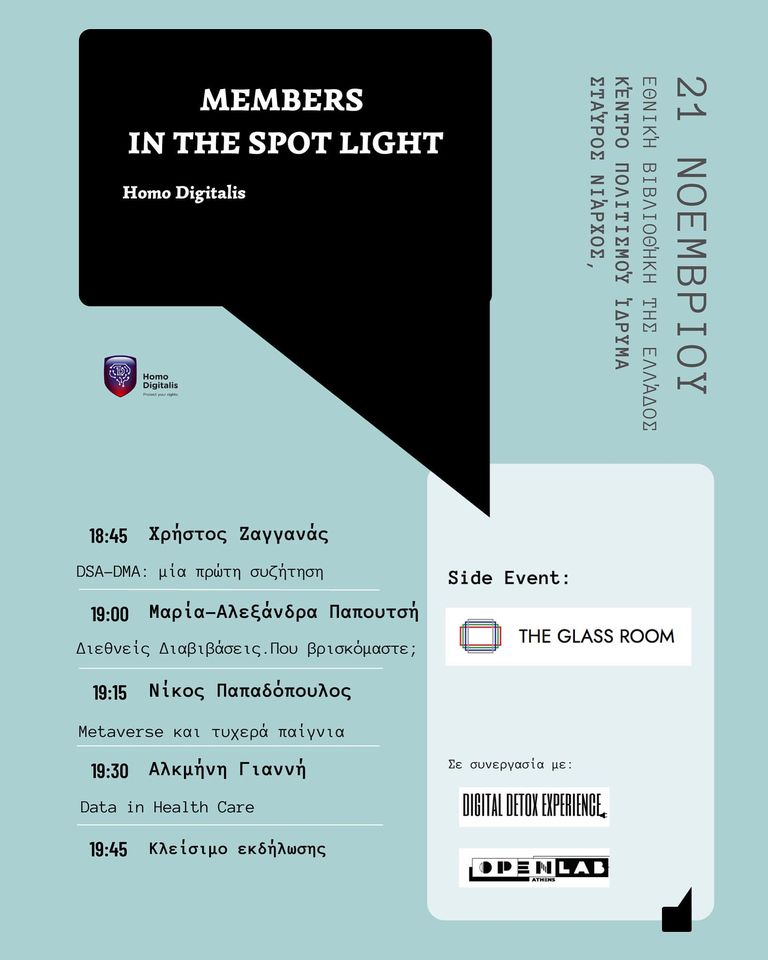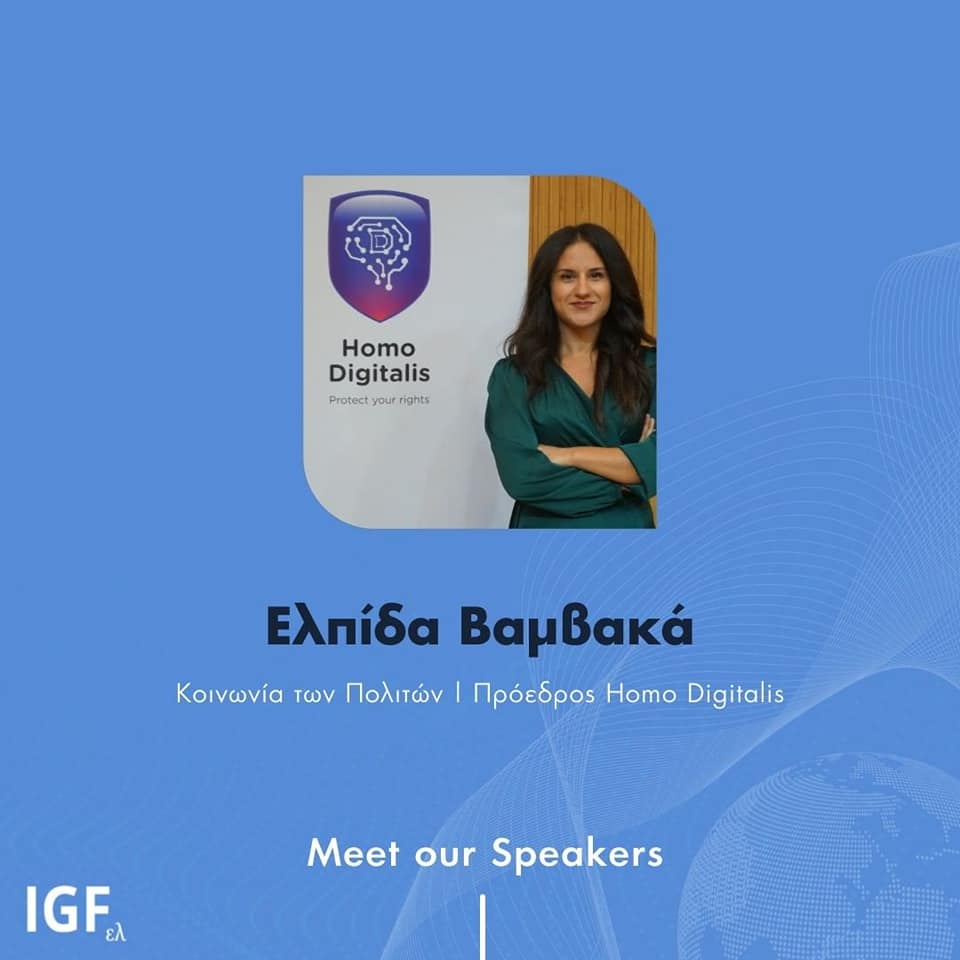We support the Andromeda Theatre Group which this year deals with Cybercrime
We actively support the Andromeda Theatre Group, which this year deals with Cybercrime, a huge social phenomenon that is shaking the modern world.
In the context of the performance “It’s Not a Game”, open discussions with the audience are organized on December 7, 14 and 21, at the Noūs Theatre – Creative space, after the performance, lasting one hour.
Tomorrow, 7.12, Apollonia Ioannidou, a lawyer specializing in Law and Technology, will speak, while on 14.12, Katerina Mezini, a lawyer with a Master’s degree in Law and Information Technologies, will participate. We thank our two members for representing us in this important discussion!
You can purchase tickets from Viva here.
We participate in the Media Pluralism Monitor study of the European University Institute (EUI)
Elpida Vamvaka, president of Homo Digitalis, participated for the second year as an expert in the Media Pluralism Monitor 2022 survey!
The study highlights the risks to media pluralism and freedom in four areas: Fundamental Protection, Market Pluralism, Political Independence and Social Inclusion.
The Media Pluralism Monitor 2022 is implemented by the Centre for Media Pluralism and Media Freedom and is a scientific attempt to map the threats to pluralism and media freedom in the Member States of the European Union and in some candidate countries, taking into account legal, political and economic variables.
We send a letter to the Government asking for the immediate drafting and proposal of a draft law of popular legislative initiative
Three years after the 2019 revision of the Constitution, when the institution of the popular legislative initiative was introduced for the first time in Greece, i.e. the possibility for citizens to submit legislative proposals to the Parliament, it remains inactive.
Unfortunately, there is no apparent legislative intention from the Greek government as an implementing law is required. This is a disheartening contempt for the Constitution, citizens and democratic institutions.
Homo Digitalis, Vouliwatch and 44 other Civil Society Organisations (CSOs) have sent an open letter to the Government asking for the immediate drafting and proposal of this draft law. We also asked whether members of the CSOs would be included in the legislative process.
You can read the letter and more information here.
Come to the Cryptoparty of Open Lab Athens at the National Library of Greece
Friday is for Cryptoparty!
Today’s cryptoparty may not have any drinks or cryptocurrencies but that doesn’t mean it can’t be fun!
Today, at 18:00 the Open Lab Athens team and Cryptoparty Athens are waiting for you at the National Library of Greece (364 Sygrou Street, KISSN) to learn how to protect our privacy online!
The workshop will take place within the framework of The Glassroom – Misinformation Edition exhibition that runs from Monday 21/11 to Sunday 27/11.
You can register here.
The Glass Room Misinformation Edition exhibition that we are co-organizing at the National Library of Greece has just started
The Glassroom Misinformation Edition exhibition that we are organizing at the National Library of Greece opened to the public today.
Visit it daily until Sunday 27 November and come and meet the teams of Homo Digitalis, Ditital Detox Experience and Open Lab Athens!
Opening hours.
Location.
Entrance: completely free
Homo Digitalis' triple participation in IGF Greece 2022 was a great success
On the weekend of 5 and 6 November 2022 we participated in #IGFGreece2022 where we had the honour and pleasure to take part in very interesting discussions about the Internet and Governance in Greece.
Many thanks to Internet Governance Forum Greece for the wonderful hospitality!
Homo Digitalis organizes Workshops at the National Library of Greece in the framework of the exhibition we co-organize The Glass Room
Countdown for the exhibition “The Glass Room Misinformation Edition”
On the first day of the exhibition, Monday 21/11 at 18.45, the Homo Digitalis team will be at the Stavros Niarchos Foundation Cultural Centre to introduce the exhibition and talk to us about interesting and topical issues.
We look forward to seeing you all there!
We bring The Glass Room exhibition to Greece
“The Glass Room Misinformation Edition” exhibition is coming to Greece on 21-27 November at the National Library of Greece to help us acquire a more critical thinking towards technology and its different aspects, to get to know better the devices we use every day, but also to discover what information we share online and with whom.
What happens when we increasingly rely on social media to seek information?
How do we recognise that the information we receive is real?
What data does social media and other applications know about us?
Who has access to this data and how can they use it?
How do we protect our security and privacy?
How does the technology industry and the business models behind it influence our decisions?
In a simple and interactive way we learn how to take back control of our data to protect our privacy and security. The exhibits help us better understand our relationship with technology, critically evaluate the information we share daily through the devices we use, and become more familiar with our apps and devices.
The Glassroom exhibition has travelled to 61 countries around the world, counting 471 award-winning events and more than 350,000 visitors worldwide.
The Glassroom Misinformation Edition
21-27 November
Daily 09.00 – 20.00
National Library of Greece, ground floor
(Stavros Niarchos Foundation Cultural Centre, 364 Sygrou Avenue)
Entrance: completely free
More information about the exhibition.
Created by Tactical Tech
Organized in Greece by Digital Detox Experience , Homo Digitalis, OpenLab Athens
Hosted by: National Library of Greece.
Homo Digitalis with Triple Representation at the Internet Governance Forum Greece 2022
Tomorrow Saturday and the day after Sunday we will be at the Internet Governance Forum Greece at OTEAcademy – the conference starts tomorrow at 10:00!
Book your place or register to attend online here.
-Stefanos Vitoratos moderates the panel “Information as Power”.
-Elpida Vamvaka participates on Sunday in the panel “The Power of Policy Making” moderated by Vassilis Vassilopoulos on internet governance and the voice of citizens in emerging governance models.
-Alexandra Giannopoulou is part of the panel “Financial Power”, on decentralised finance.











